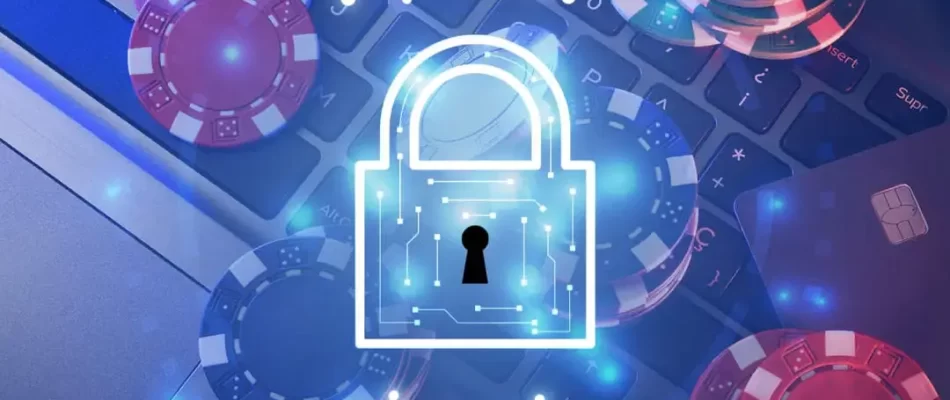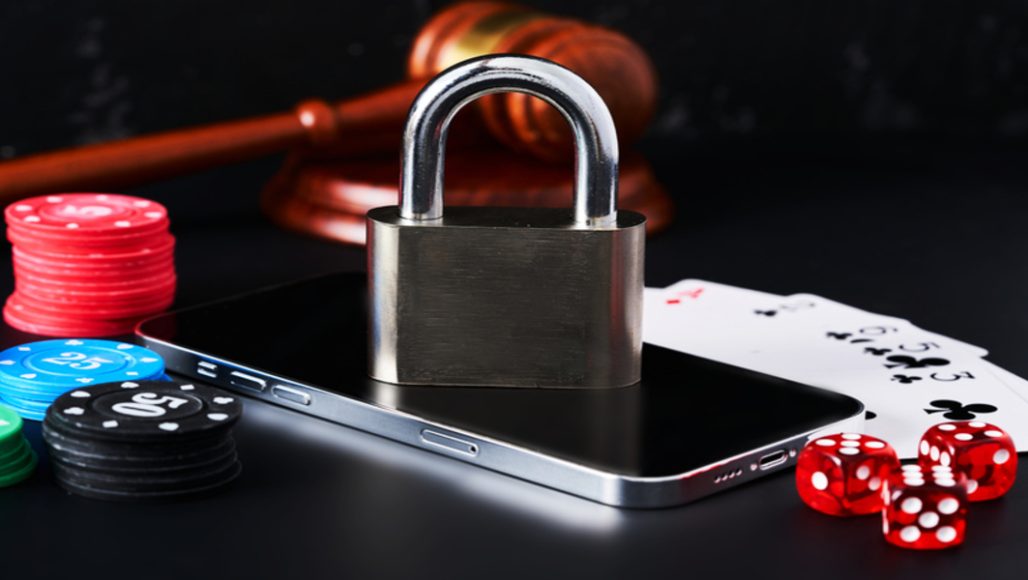Online Gambling Security: What Every Player Should Know

In an age where digital entertainment has become synonymous with convenience and speed, the popularity of online gambling has soared. From classic card games to dynamic slots and sports betting, the virtual gambling world is a billion-dollar industry, drawing in millions of players globally. But with convenience comes concern, and one of the most pressing questions that every player should ask is: how safe is online gambling?
This article takes a deep dive into online gambling security, offering clear, data-backed insights into the measures taken by platforms to protect users, as well as what players can do to protect themselves. It’s not an advertisement but a realistic overview of the risks, defenses, and responsibilities that shape this ever-evolving industry.
The State of Online Gambling in 2025
Online gambling is expected to reach a market value of over $125 billion by 2027, according to global analytics projections. Fueled by technological advancements, mobile access, and changing legislation in several countries, more people are participating in virtual betting experiences than ever before.
This explosive growth, however, makes the industry an attractive target for cybercriminals. With large amounts of personal and financial data in play, platforms and players alike must remain vigilant.
Is Online Gambling Secure?

The good news is that the vast majority of licensed and regulated gambling platforms today employ high-end security protocols. These include SSL encryption, firewall protection, two-factor authentication, and strict data protection regulations under jurisdictions like Malta, the UK, and several U.S. states.
Yet, no system is completely immune to threats. Just as brick-and-mortar casinos invest in surveillance and physical security, online casinos must commit to robust digital defenses. Understanding these security layers helps answer the common question: is game money safe?
| Security Measure | Description | Purpose |
|---|---|---|
| SSL Encryption | Encrypts data transmitted between user and server | Prevents interception of sensitive info |
| Two-Factor Authentication | Adds a second layer of identity verification | Protects accounts from unauthorized access |
| RNG Certification | Ensures randomness in game outcomes | Guarantees fair play |
| Firewall Protection | Blocks unauthorized access to servers | Prevents hacking attempts |
| AML/KYC Compliance | Anti-Money Laundering and Know Your Customer procedures | Prevents fraud and identity theft |
Regulatory Oversight and Licensing
A central pillar of online gambling security is licensing by reputable jurisdictions. Regulatory authorities conduct extensive audits and impose strict operational requirements, covering everything from game fairness to data protection.
For example, licensed platforms must use independently audited Random Number Generators (RNGs) to guarantee unbiased game results. Furthermore, they must operate under clear anti-fraud measures and maintain transparent financial records.
Players can usually verify a casino’s licensing by scrolling to the bottom of its homepage. Legitimate operators proudly display license numbers and logos from their regulatory authorities.
How Players Can Protect Themselves
While gambling platforms are responsible for safeguarding user data and maintaining fair play, users must also take responsibility for their own online safety. Knowing how to stay safe online gaming involves a mix of common sense, awareness, and technical know-how.
- Choose Licensed Platforms: Always verify that the website is licensed by a recognized gambling authority.
- Use Strong Passwords: Create unique passwords and change them regularly.
- Enable Two-Factor Authentication (2FA): An extra layer of security that significantly reduces the risk of unauthorized access.
- Avoid Public Wi-Fi: Use secure, private networks when making transactions.
- Set Deposit Limits: Many platforms offer tools to help manage your budget and avoid compulsive behavior.
- Verify Payout Policies: Read through the terms and conditions to understand withdrawal limitations.
- Monitor Account Activity: Regularly check your transaction history for unauthorized actions.
- Don’t Share Personal Information: Avoid giving out personal or payment details via chat or email.
- Be Wary of Phishing Scams: Never click on suspicious links, especially those promising free credits or jackpots.
- Use Secure Payment Methods: Opt for trusted financial services with fraud protection mechanisms.
Keeping Gamblers Safe in a Digital World
Protecting users goes beyond cybersecurity. Emotional and financial well-being are also part of the broader discussion. Modern platforms are increasingly aware of their ethical responsibilities and offer tools like self-exclusion programs, cooling-off periods, and real-time spending trackers.
According to industry data, up to 3% of online gamblers may show signs of problematic behavior. Recognizing this, responsible platforms incorporate behavioral analytics that monitor for erratic activity, alerting users if they cross certain thresholds.
Ensuring gamblers safe requires more than software—it calls for a human-centered approach that combines technology with empathy.
How Casinos Keep Their Systems Safe
The question many ask—is a casino safe?—depends largely on their investment in cybersecurity. Industry leaders spend millions annually on threat detection, ethical hacking simulations, and staff training.
In 2023 alone, cyberattacks cost the global gambling industry an estimated $5 billion. This loss was driven by phishing, data breaches, and denial-of-service attacks. As a result, major operators are now partnering with cybersecurity firms to implement real-time monitoring, biometric logins, and blockchain-based identity verification.
Beyond the technical, customer service is another layer of protection. Reputable platforms maintain 24/7 live chat and email support to handle issues swiftly—something users should consider a non-negotiable feature.
Red Flags to Watch Out For
Despite growing protections, fraudulent sites still exist. Here are some warning signs:
- Lack of visible license or regulatory body information
- Unrealistic bonuses or guaranteed wins
- Poor grammar or spelling errors throughout the site
- No secure (HTTPS) protocol on payment pages
- Unresponsive customer support
If you encounter any of these, it’s best to exit the site immediately and report it to a relevant gambling authority.
Final Thoughts: Striking a Balance
Online gambling, when approached responsibly and securely, can be a fun and rewarding experience. The key lies in choosing platforms that prioritize user protection and staying informed about your own digital behavior.
The rise of sophisticated encryption, regulatory oversight, and responsible gaming features means that online gambling security has never been stronger. Still, it’s crucial to remember that security is a shared responsibility between operators and users.
Whether you’re a seasoned bettor or new to the scene, knowing how to stay safe online gaming is not optional—it’s essential. As the digital landscape continues to evolve, so too must your awareness and your expectations.
By combining vigilance with the right tools, players can protect their finances, their data, and their peace of mind in an industry where the stakes are high in more ways than one.
FAQ
Online gambling security refers to the technologies, regulations, and practices used to protect users’ personal information, financial data, and gameplay integrity on gambling websites. This includes encryption, identity verification, and secure payment systems.
Check if the casino is licensed by a reputable regulatory authority. Look for SSL encryption (a lock icon in the browser bar), fair play certifications, and clear contact information. Legitimate platforms also provide responsible gaming tools and transparent terms of service.
Depositing money is generally safe if the site uses secure payment gateways and encryption protocols. Use trusted financial methods like credit cards, e-wallets, or cryptocurrency, and avoid sharing sensitive information on unsecured networks.
Immediately stop all activity, document any suspicious behavior, and report the site to the relevant gambling authority or consumer protection agency. Avoid further deposits and monitor your bank or wallet for unauthorized transactions.
Most licensed casinos require identity verification to comply with anti-money laundering laws. While you can stay somewhat private by using crypto or pseudonyms, complete anonymity is rarely possible on regulated platforms.
Use strong passwords, enable two-factor authentication, set deposit limits, and avoid using public Wi-Fi for transactions. Always play on licensed, secure platforms and take breaks to maintain healthy gaming habits.
Yes, as long as they’re official apps downloaded from trusted app stores or directly from the licensed operator. They use similar encryption and login protections as websites.
Yes, on regulated sites that use secure wallets and encrypted systems, your game money is generally protected. However, always read the platform’s withdrawal policies and terms of service.